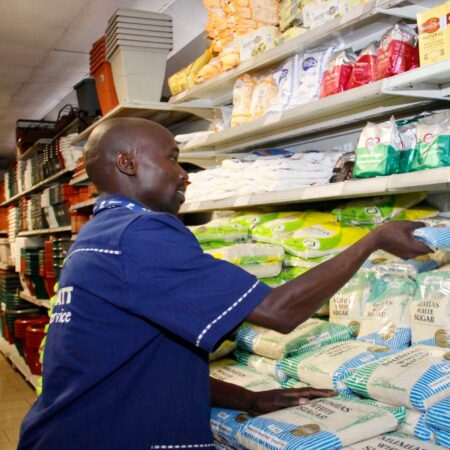Kenya’s customer service landscape is set to change dramatically over the next few years since what has been the norm is becoming outdated and inefficient for many.
It no longer makes sense to tell customers to wait for 24 hours before they get a product or a service they need urgently since everything is now on-demand.
People have shifted to relying more on digital support and as it is, traditional customer service as we know it is likely to be dead in five years in Kenya.
Read: Building Trade Connections: Growing logistics channels in Africa
Over the last decade, customer service has relied on channels such as email, phone, and face-to-face contact, but the industry is rapidly changing.
As digitisation accelerates, customers have higher expectations for customer service, and contactless mobile transactions have become the new normal. In this article, we will look at the main drivers of changing customer service, shifts towards communication through multiple communication channels, and how businesses can tackle these challenges.
Shifting communication channel preferences
As digital service usage is still accelerating, it’s important to adapt your customer service to this change in behaviour.
According to the Communications Authority of Kenya (CA), by June 2020, mobile phone penetration had almost reached 120 per cent in Kenya, with subscriptions increasing by 10 per cent year-on-year. In Africa and the rest of the world, mobile technology is connecting consumers in new ways.
With increased digitisation comes a shift in communication channels.
In 2019, WhatsApp was the most downloaded mobile app in both Kenya and the rest of the world. As channel preference is shifting towards messaging, customers expect swift responses from brands. Customer service managers face a huge challenge in managing not only phone calls and emails, but more customer service enquiries from different channels.
Brands need to find smart ways to manage the increase in both channels and workload.
The bot revolution
Chatbots can answer standardised questions using content that’s written in a way that sounds human enough to satisfy basic queries. This saves time so your agents can handle more complex queries.
Not every part of the customer experience will be automated though. It’s about knowing that automated services also need a bit of extra help. Blending human contact with bots is the way to stay ahead in the growing mobile-first economy, allowing automated systems to pick up most of the extra work while humans can step in when things get a little too complicated and add that personal touch to the conversation.
Response time: Don’t leave them hanging
“We’ll get back to you within 24 hours” is not good enough anymore. More smartphones and faster data transfers mean people expect faster responses. These days, 24 hours can feel like a month to a customer because other businesses can handle queries in milliseconds. Answers need to be available anytime, anywhere – and, they need to be right the first time. Faster answers and faster solutions equal happy customers.
Read: How will the hospitality and tourism industry win the war against COVID-19?
Your customer service department in five years
Let’s imagine your customer service department five years from now. You’ve got the perfect service team waiting to jump in to deal with complex issues while the bot takes care of everything else. But your customers are not just on your website – they’re engaging via WhatsApp, Twitter, Facebook, and probably new platforms that don’t exist right now. How can you manage this more efficiently?
You might have different teams working on your social media monitoring, emails and ticketing, handling calls, and so on. So how do you keep these teams aligned and connect customer journeys from your call centre to Facebook or Twitter?
Having each of your team members know the customer by name is what makes a company look organised and reliable, compared to one that makes a customer explain themselves five times over to each new department they come across.
With these challenges in mind, www.CM.com has developed the Mobile Service Cloud. The Mobile Service Cloud offers the channels, products, and features companies need to provide a superior customer experience, reduce pressure on your customer care team, and even improve business results right now and in five years.
What is the future of customer service?
A good customer journey will need to be optimised, personalised, and connected, or your customer will go elsewhere.
Over the next five years, we will see customer service adapt and change into something bigger, faster, and perhaps a bit more robotic (in the best sense of the word). Your customers will expect more because they’re already used to more. In a world of Kenyan and global customers with a wealth of information instantly at their fingertips, answers will be immediate, they will be tailored to whichever channel customers are using, and humans will still be available to step in where needed.
Say goodbye to the old way of doing things, and maybe double-check your auto-replies. We are at a turning point where customer experience has been catapulted into an automated era – one that doesn’t show any signs of stopping soon.
To avoid missing out on the evolution of customer service, companies should rethink their offerings and the best way to deliver to the customers in need and as soon as possible.
With the changing landscape- especially following the changes brought about by the Covid-19 pandemic- companies should understand that most needs are now being addressed online which is faster driven by the internet technology advancement.
In addition, the customer service sector should develop new education models featuring well-resourced virtual teaching and learning schemes to be at par with the changing times or else those who are studying for a job in the sector may be locked out if the outdated curriculum continues to be in use.
Now more than ever before there is a need to adapt as quickly as possible to the changing dynamics of the sector otherwise companies may lose out on the customers who are now more on-demand oriented delivery than just having a good and assuring voice on the phone.
As it is, the internet has flipped everything upside down and customer service is not immune. The earliest adapters are the ones who will benefit the most.
Read: Planning is more important than prediction for Africa’s property sector now











